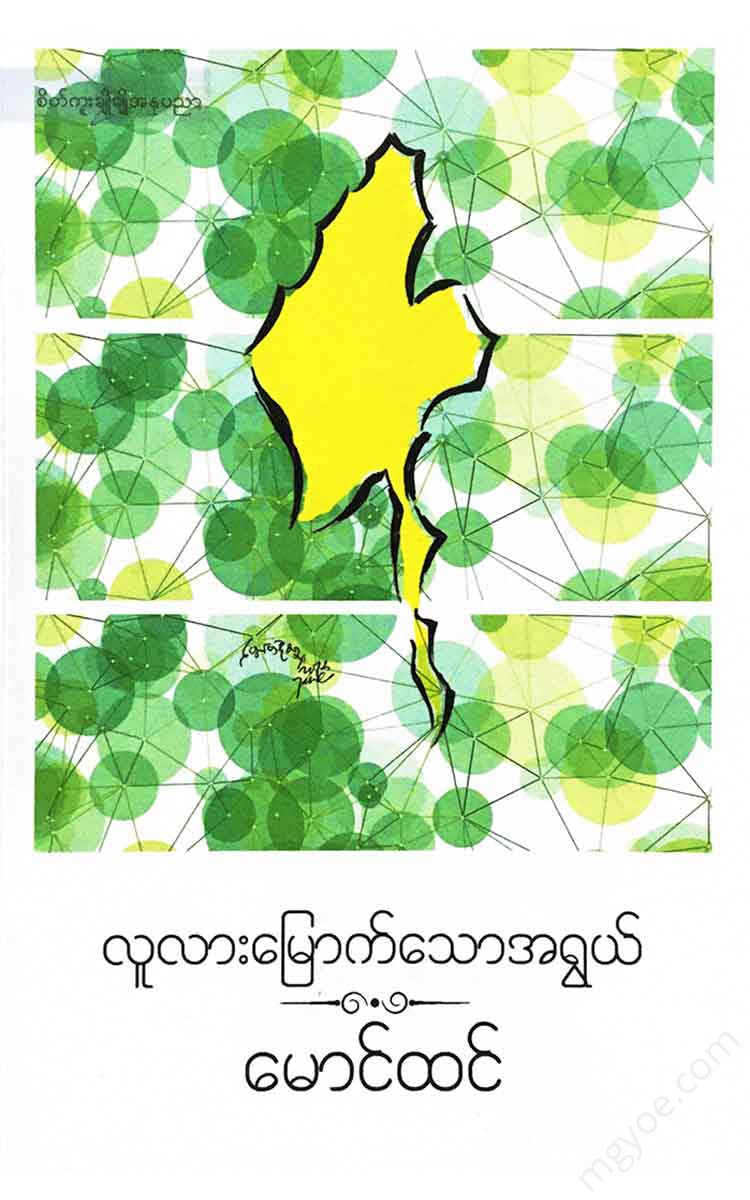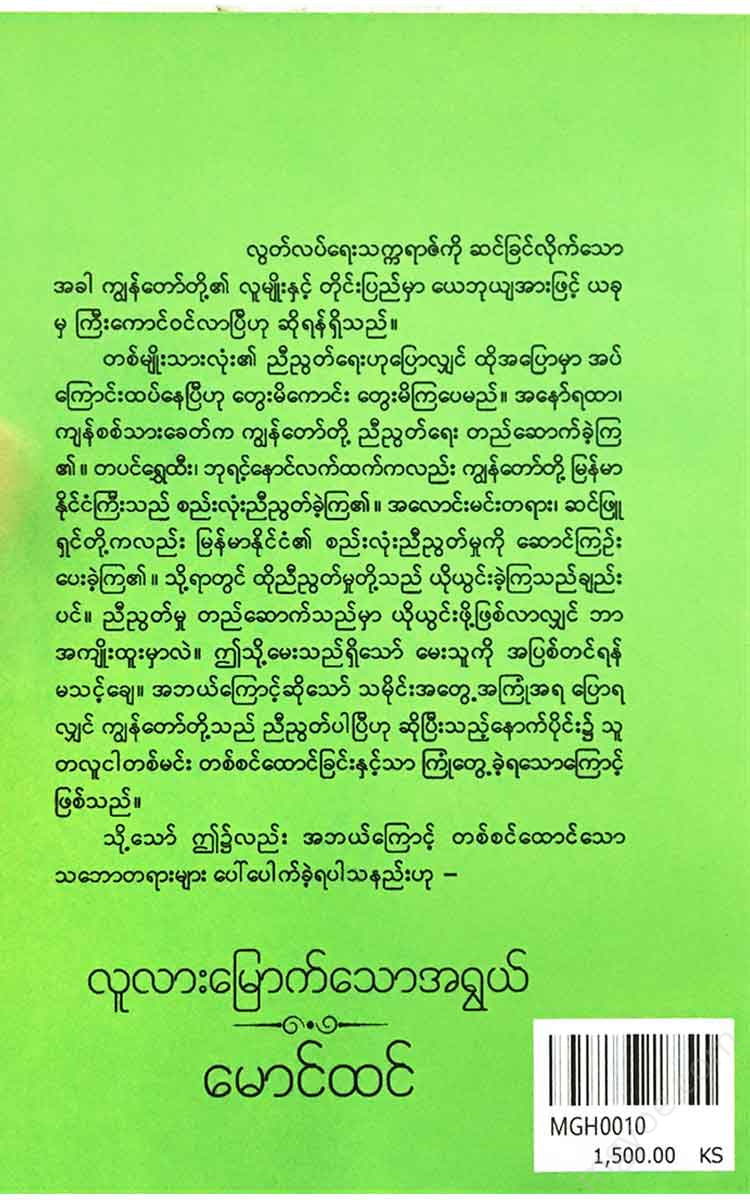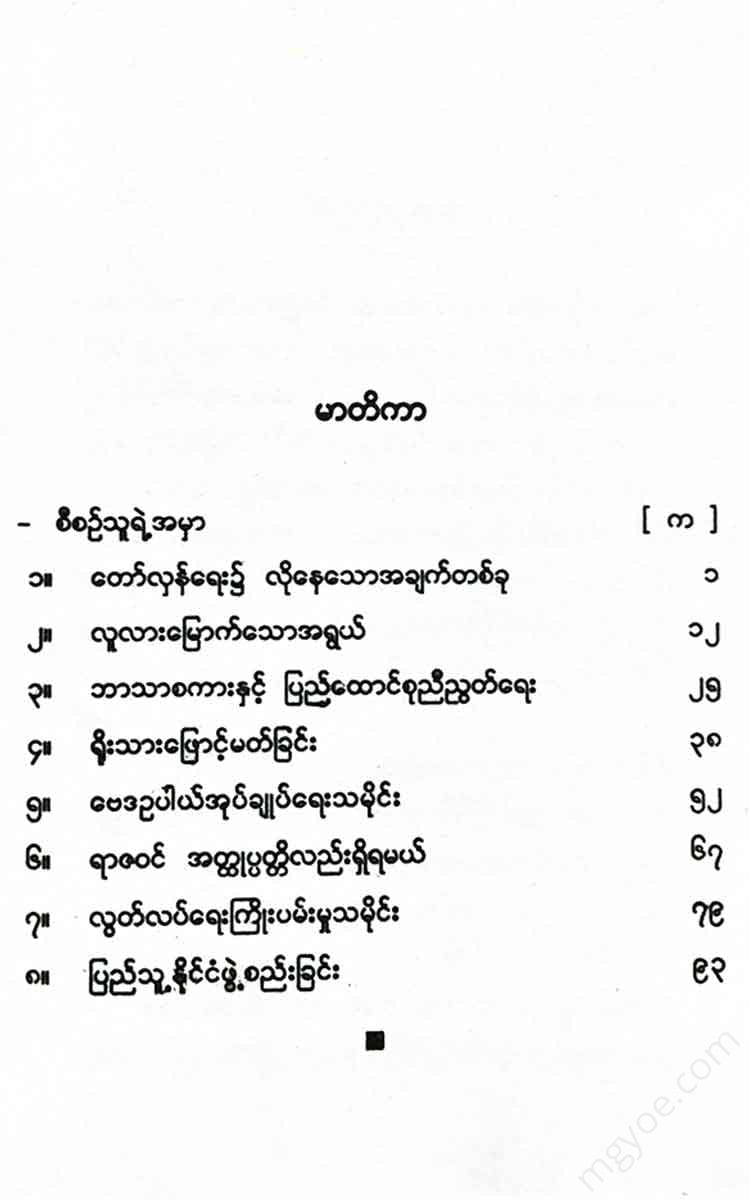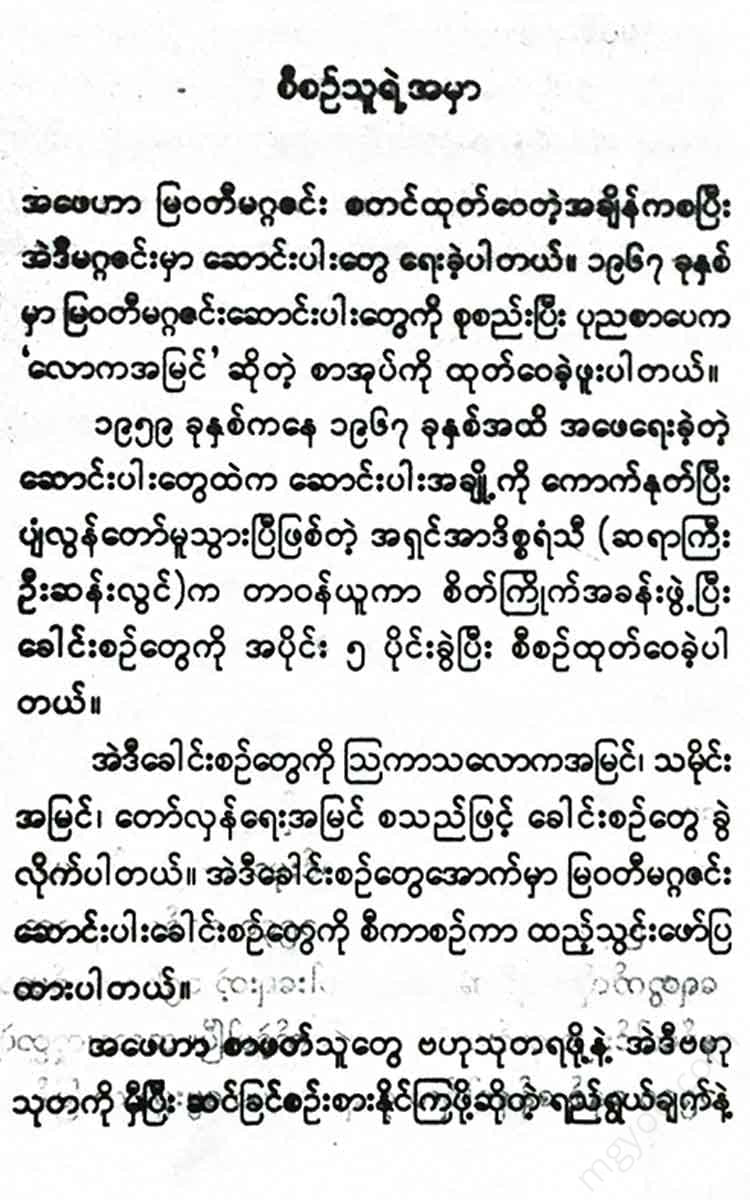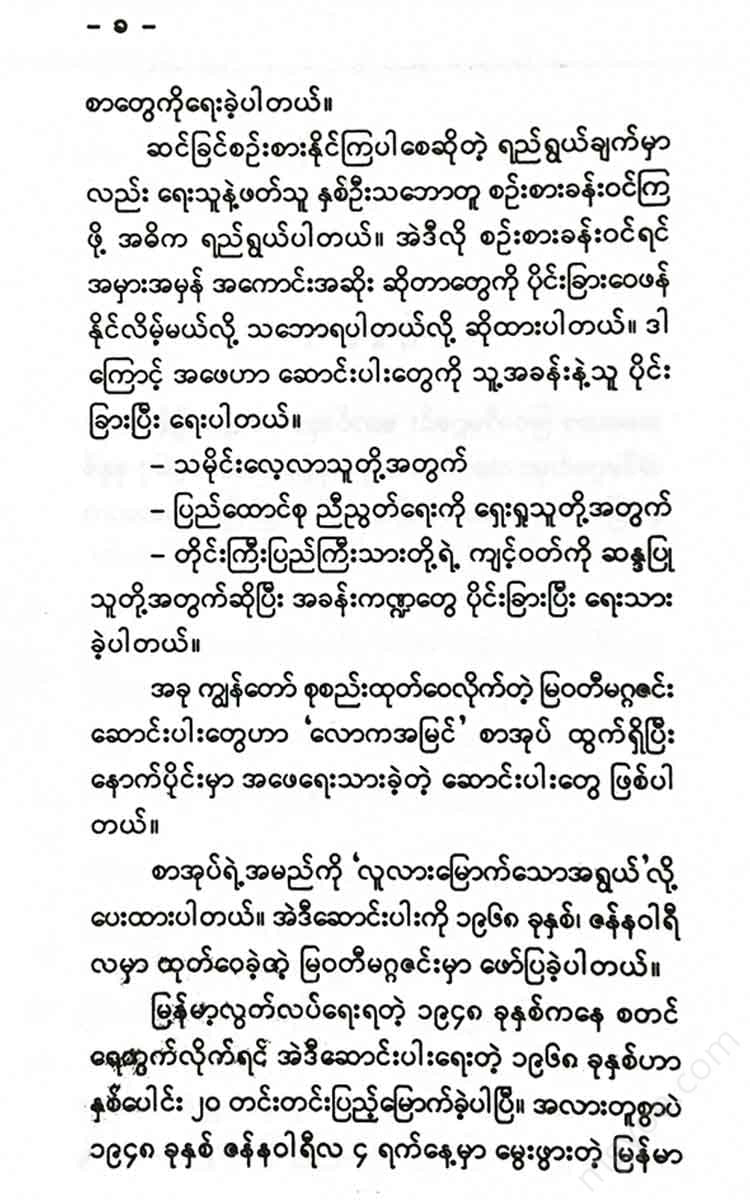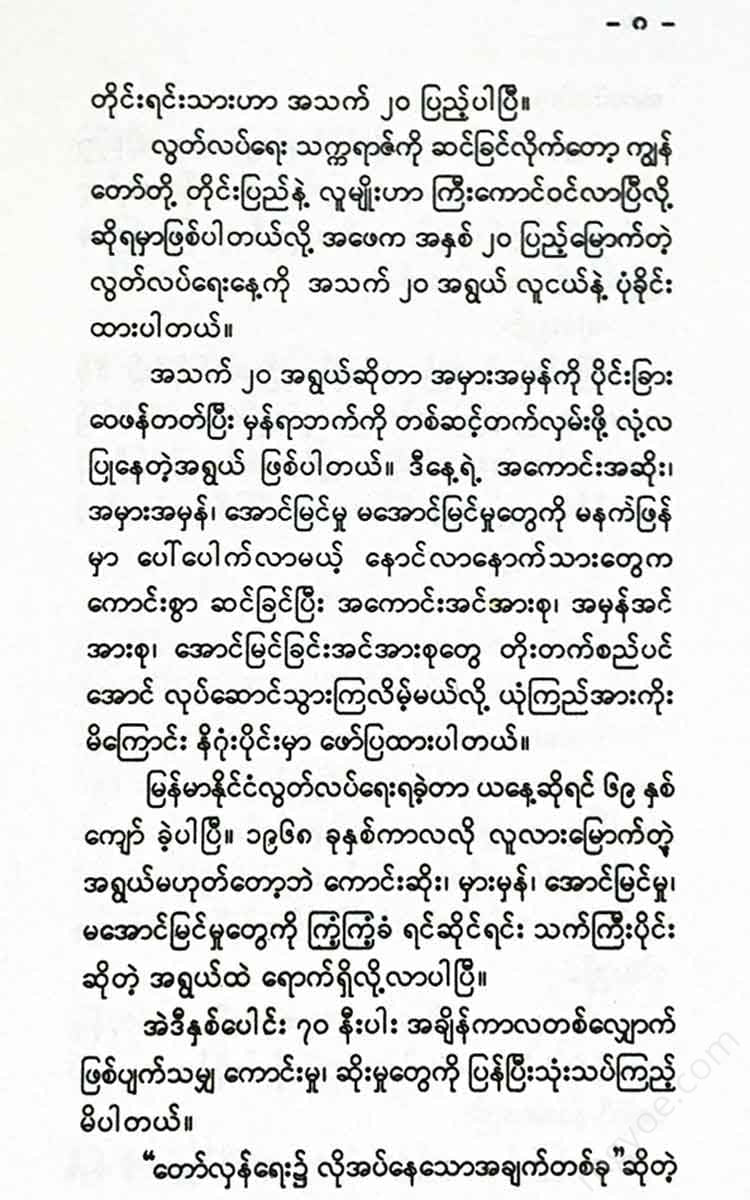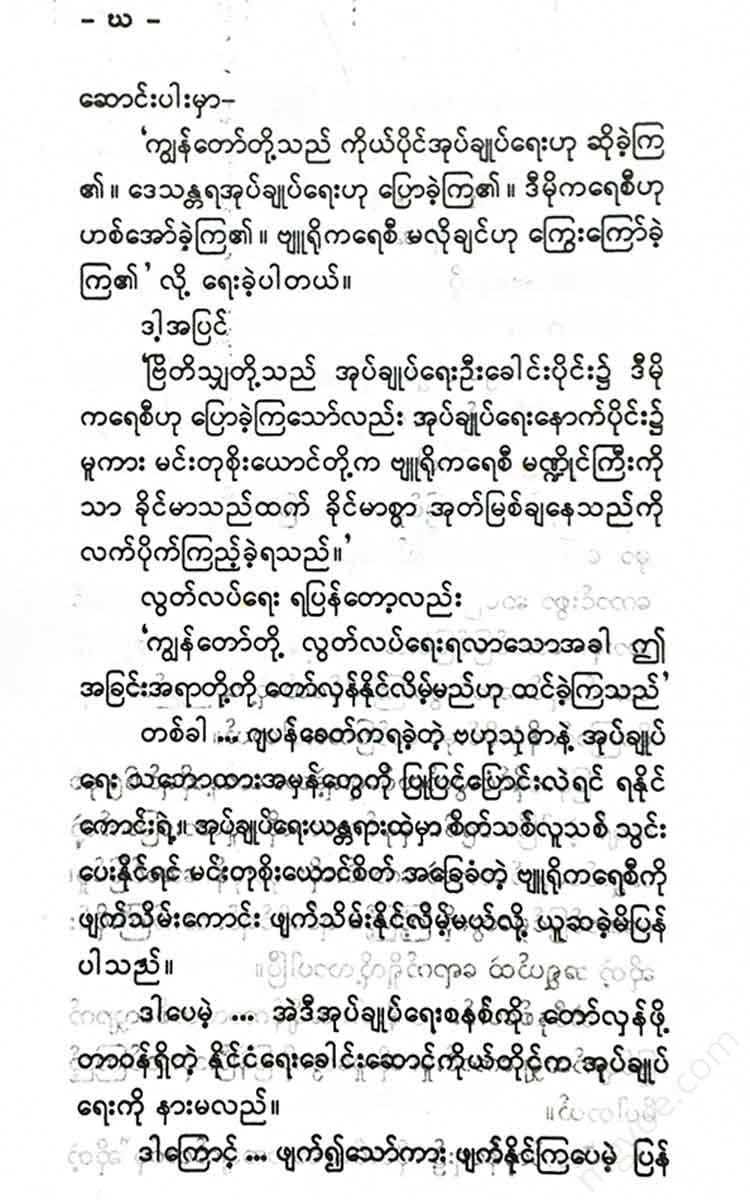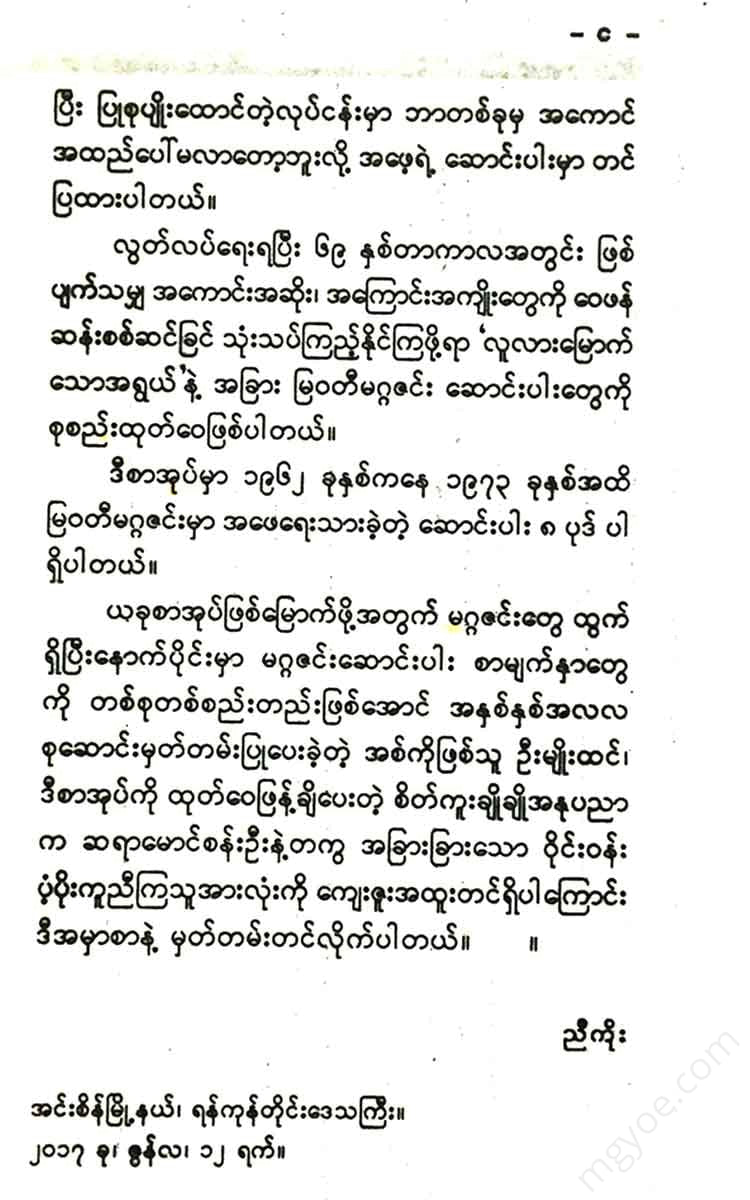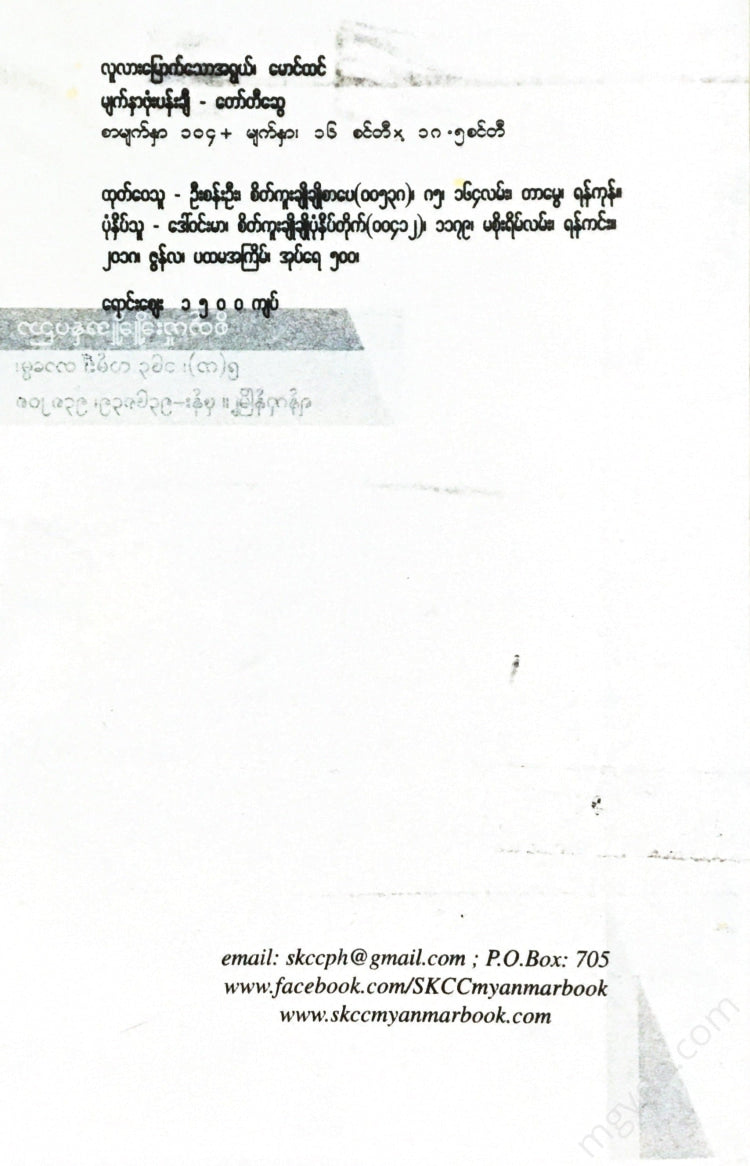စိတ်ကူးချိုချိုစာပေ
Maung Htin - A man of great age
Maung Htin - A man of great age
Couldn't load pickup availability
A thing needed in the revolution
I have been thinking about the things I have written about for a long time. But my thinking is not finished, it is not finished.
Still. Therefore, in the future, we will have to continue to think about it and read the books of scholars regarding the concept of Dharma and compare it with the Dhamma. Therefore, I would like you to take to heart that what I have written here is only an introduction to the ideas and concepts.
If I awakened ideas and intellectuals were awakened and came up with solutions because of my awakening, then I would consider it worthwhile to awaken them.
We are talking about revolution today, foaming at the mouth.
We are talking about various revolutions, such as the Japanese Revolution, the English Revolution, the Social Revolution, the Land Revolution, the Industrial Revolution, the Right Revolution, and so on.
Our revolution is indeed vast. For example, our revolution is about 1,300 miles long, from Cape Toth in the south to Khakassibo Razi in the north. And from Nattwe in the west to the Mekong River in the Kyung Lad district in the east, it is about 600 miles wide.
But let's think again. How deep is our revolution? How deep is it in terms of modern literature?
Is it a skin deep? Is it a sesame seed deep? Is it a hand, a yard, two yards, a mile, two miles, what is it? I don't understand it, even the Buddha Sue. Where I don't understand, I can follow the country's experts closely.
Once upon a time, I visited the village of Sarkin, a salt-mining site. In the Sarkin village area, the fields that used to be poor in rice production have now been bulldozed and fenced off. Dams have also been built to regulate the flow of water within the fields. This is a program to restore farmland.
On my way back from the salt mine, I passed through fields that had been cleared in the old days with gumboots worth five kyats, entering and leaving one village after another.
At one point, we were relaxing at the home of a villager, plucking coconuts from the trees and drinking coconut milk. The host was a farmer who had survived three eras: the British era, the Japanese era, and the Burmese era.
"Well, since we gained independence, the areas where you used to work hard and plow and not produce 15 baskets of rice per acre now produce 30 baskets. So what's the difference? Isn't that progress?" I thought to myself, confused.
The farmer did not know what I was and did not speak to me. However, when my companions who were with me insisted that I was nothing, his face showed signs of wanting to say what he wanted to say. Then I hinted that they were getting ready to drink coconut juice under the coconut tree. My companions also went under the coconut tree.
When only the farmer and I were left, the farmer said, "Well... of course, progress is increasing, sir, but no matter what anyone says, we have to live with this big man and this policeman."
I believe his words indicated a way for me to measure the depth of the revolution.
Yes. We are talking about revolution with a twist. But as the farmer said, during the British era, there were this chief and this policeman, during the Japanese era, there were this chief and this policeman, and when we come to the Burmese era, there are this chief and this policeman.
I noticed with sadness that the farmer didn't even use the word "police." What the hell? I think we're joking somewhere.
We said self-government. We said local government. We shouted democracy. We shouted that we don't want bureaucracy. But what if the farmer's words were nothing special?
Why is bureaucracy still growing in this era? Didn't the revolutionary leadership warn us about the growth of bureaucracy a while ago? It would be good to research this issue. If a civil service commission were to be formed and the investigation were to be conducted around the world from the North Pole to the South Pole, we would learn more about the ways in which bureaucracy grows, and who knows if it will continue to grow?
All of us Burmese people come from a family of farmers. More than 75 out of every 100 people, or about 80 percent, are farmers.
Looking back at any era, those who ruled the country were not all descendants of the great blood of the Asambinnakhattiya dynasty. Even during the reign of the Burmese kings, the descendants of peasants were drawn into the administration and used as servants.
When the British occupied Burma, they retired the royal family and kept them at a distance. They mostly selected the children of ordinary farmers and peasants to serve in the royal service. Therefore, from the chieftains to the chiefs, secretaries, etc., today, they are generally of peasant descent. However, the British instilled in the children of peasants the spirit of the king and made them their allies.
Usually British citizens. It can be said that they are free from the spirit of monarchy. They are the ones who built the tradition of democracy, so they often make fun of those who have a monarchy in the British Isles. However, there is one thing that is unique about the British. That is, although they call it democracy in terms of governance, the British people have not been able to give up the idea of the monarchy to this day, and they still cherish it for national unity.
